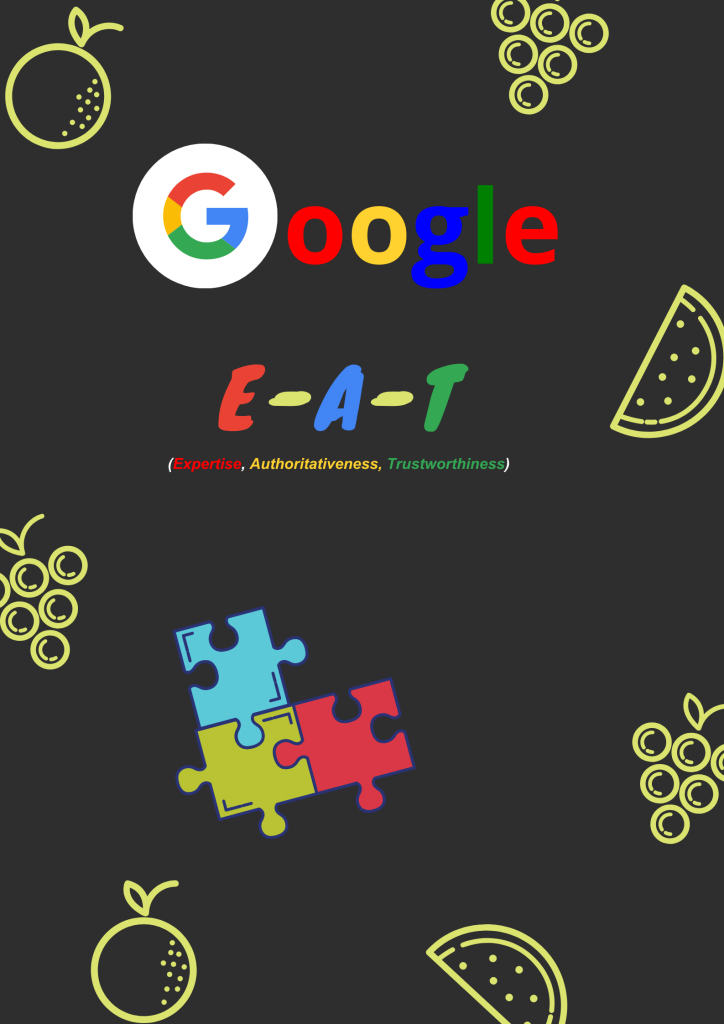Quality content and Google rankings are important to all websites. With so much competition on the Internet, site owners need to make sure that they are always in compliance with Google ranking requirements so that they place high enough in search to be visible.
High rankings in Google are much more than having the right keyword saturation or having enough videos on your website. It is about passing the E.A.T. standard for Google. Additionally, you must continue to pass these standards because Google is always updating and fine-tuning their requirements.
What Is E.A.T.?
E.A.T. stands for Expertise, Authoritativeness, and Trustworthiness. Google will rank your site based on how well the main content matches these three guidelines. Each of the factors has its own set of standards, and your main content must meet each one to have a higher ranking.
Google Definition of Expertise
Google wants to know that the information that you place on your site is credible. This is especially important for sites that affect your money or your life (YMYL). O they will search the site to see if it contains the following:
- Who is writing the content on the site and if they have the knowledge or authority to be considered an expert. To determine this, Google will look to see what information is posted about the site owner or content creator, and if that information is easy to find. For example, a legal website would have information about the credentials of the attorney that owns the site and creates the content. That would give them the definition of being an expert.
- If the subject matter is one that life experience other than schooling creates an expert, Google will accept this form of expertise as well. However, the main content must contain information on how and why that person is an expert. An example would be someone who travels a lot for business and writes information on how to earn the most rewards for their airline and hotel stays. Since they are actively working within that “field of knowledge,” Google would consider them an expert.
Google Definition of Authoritative
The main content of the site must provide content that provides a service for the reader. The content must contain useful and relevant information on the subject matter. It is not enough that the person who owns and authors the site is an expert; the information must be of a higher quality.
Google Definition of Trustworthiness
The final criterion that the main content must meet is that the information is trustworthy. The content needs to be more than created by an expert; it must be able to be proved. If you do not verify the trustworthiness of the information, an expert can use their authoritative position to pass on bad or harmful information.
To have the trustworthiness factor met, the information provided should be able to be linked to the main source of information or should have reviews that can attest to the accuracy of the information.
For example, if a law firm website quotes information from the Statute of Limitations, it should be able to provide a link to those statutes for the state in which the firm practices. This would make the information not only expert but trustworthy.
Special Considerations For E.A.T.
Google places higher E.A.T. standards on websites that contain content that affects your money or your life(YMYL). These sites, if bad information is posted on them, could have a negative impact on a person’s life or cause them harm. Some of the YMYL sites that Google places additional standards on include:
- National news sites
- Financial news sites
- Medical advice sites
- Parenting information sites
- Scientific information pages
- Legal and Tax information sites
- High-stake advice sites such as those concerning home repairs
- Hobby sites that would require an expert to teach such as music lessons
Understand YMYL Information
The reason that Google places so much priority on the accuracy of YMYL webpages is because of the negative impact that inaccurate, misleading or deceptive information could have on the health, happiness, and financial security of the individual reading the page.
YMYL content must meet or exceed all of the requirements for E.A.T. Experts on the subject matter being presented should be very careful to provide the evidence necessary to back the information in their page content.
Best Practices to Increase Ranking on Google
Of course, there are many other factors that you must consider when evaluating the content of your site. Every page of the site must have relevance and should meet the E.A.T. guidelines. You will want to update older pages on your site to meet these guidelines or remove pages that are no longer relevant.
In the past, having video was very important to how your site ranks. While video continues to be important, you need to make sure that the video is relevant and that it matches the authority of the page. For older pages, you want to make sure that your videos are formatted in a way that will meet current Internet speeds for loading. Slow loading pages are ranked lower than similar pages.
Content that is available on your pages should be evergreen, if possible. If older evergreen content is no longer correct, the content of the site should be updated or removed. Many people think that these older pages no longer have relevance and “forget” about them. However, these old less-relevant pages can pull down the ranks of the site.
Overall, the most important thing to remember is that once you place content on your site, you have to continually monitor it to make sure that it is relevant and meets the new guidelines for search engine ranking. Google continues to change its guidelines as the Internet and the way people use it changes.
For the best rankings, make sure that your content always meets the E.A.T. standards. Make sure that you check Google ranking standards periodically so that you know that you are meeting all of their criteria. And perhaps the most important thing to remember, never let your content become irrelevant.









